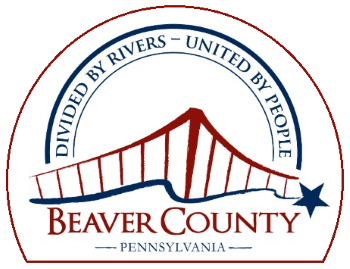Commissioners Office - Duties & Responsibilities
Organization
Counties in Pennsylvania are organized under the authority of the Pennsylvania Constitution for the purpose of carrying out certain services mandated by the Commonwealth and other services that meet locally determined needs. All Pennsylvania counties have in common a legislatively established and fundamental structure which utilizes a "Commission" form of government for Legislative and Executive functions. Unless the county is a "Home Rule" county, County administration organized around the Board of County Commissioners and certain constitutionally mandated offices. Home Rule counties vary in structure and function; of the sixty-seven counties, there are currently six counties in Pennsylvania who have chosen that form of government. Home Rule can only be accomplished with a local referendum.
Generally, the Board of County Commissioners is responsible for the orderly and efficient operation of county government. The Board is the seat of legislative and executive powers in the county and has broad authority in the following areas: budgets and finance, debts, contracts, appointment of department heads and staff in departments that report directly to the Board, as well as appointments to the many authorities, commissions and boards.
Finance
The Commissioners are the managers of fiscal affairs. They prepare an annual budget, establish and levy taxes, and invest all idle cash. Two other offices share certain aspects of fiscal responsibility with the Board. The Controller is the bookkeeper for all county funds and acts as secretary to the Retirement Board and Salary Board; the Treasurer collects all taxes, records all revenue and also serves on the retirement Board.
Counties in Pennsylvania rely on federal and state grants to fund a majority of their programs. Beaver County levies only one tax, the real estate property tax. The Board of Commissioners, by state law, is the designated Board of Assessment Appeals and they have the duty to establish, through their Chief Assessor, a permanent and dynamic records system consisting of tax maps, property record files and valuations, and property owner indices pertaining to all real property in the county. Landowners who object to the values placed on their lands and buildings have the right to appeal to the Board of Assessment Appeals.
Annually, properties for which real estate taxes have not been paid are referred to the Tax Claim Bureau, which attempts for one additional year to collect the delinquent tax. All properties for which two years of taxes are delinquent are exposed to public sale each September and the proceeds from the sale are distributed to the three taxing bodies (county, municipal, and school) in which the property is situated.
Personnel
The County Commissioners have the responsibility for hiring, directing, and terminating the work force of all departments reporting to them. As sitting members of the Salary Board they have authority to establish positions and salaries in every department and is the designated employer of all County employees for purposes of collective bargaining and the administration of resulting agreements. The Office of Employee Relations is responsible to the Commissioners for negotiating and administering employee health insurance and other employee benefits, and for accepting and screening employment applications. The Board of Judges has sole authority to hire and direct the employees of the Judiciary. The row officers have the authority to select and direct employees in their respective offices.
